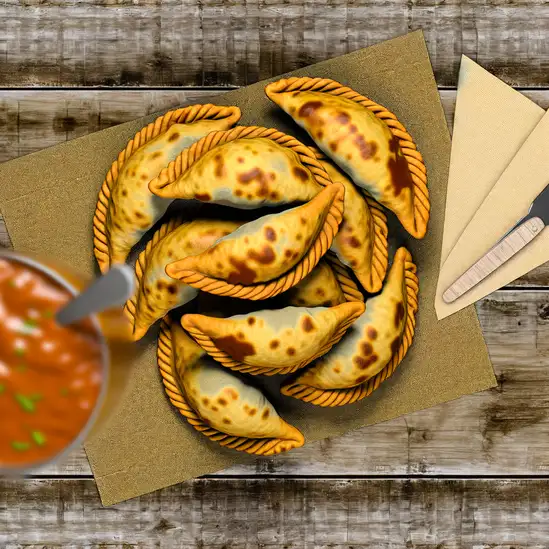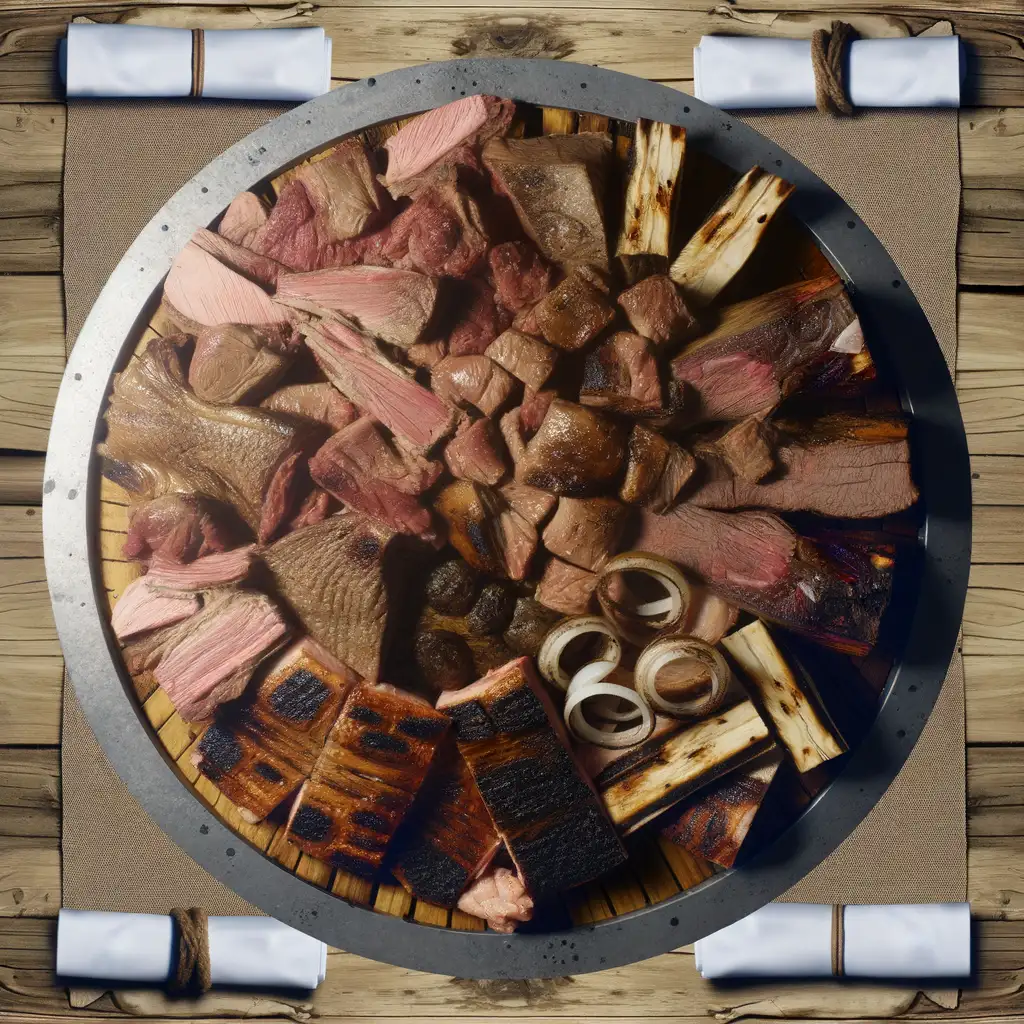



If you ever find yourself craving a place where nature’s raw beauty meets a laid-back,welcoming spirit,Pucón in Chile is where you want to be. Imagine waking up to the crisp,pine-scented air with the imposing Villarrica Volcano standing guard in the distance,its snow-capped peak often puffing gentle clouds of steam. The town hums with a relaxed energy—locals and travelers alike swapping stories over strong coffee or fresh empanadas in cozy cafés that spill onto sun-dappled streets. There’s a rhythm here that feels both adventurous and comforting. Walking through Pucón,you’ll hear the laughter of children playing near the glistening shores of Lake Villarrica,the water shimmering under the afternoon sun. The scent of wood smoke from nearby cabins mingles with the earthy aroma of the surrounding forests. At night,the sky bursts with stars,and the crackle of campfires invites you to slow down and soak it all in. The town’s character is a blend of indigenous Mapuche culture and modern Chilean warmth,visible in the colorful markets and the friendly chatter of artisans selling handwoven textiles and local honey. What really makes Pucón unforgettable is how it stirs your senses and spirit. Whether you’re hiking up volcanic trails,soaking in natural hot springs,or simply savoring a glass of Chilean wine while watching the sunset paint the lake in fiery hues,Pucón feels like a place that invites you to breathe deeper,explore further,and connect more deeply—with nature,with culture,and with yourself.
The information on this page is currently being reviewed by Tripkliq and should be used as a guide only
Eng word: Hello
Eng pronunciation: OH-lah
Local language: Hola
Eng word: Goodbye
Eng pronunciation: ah-DYOS
Local language: Adiós
Eng word: Thank you
Eng pronunciation: GRAH-syahs
Local language: Gracias
Eng word: How much
Eng pronunciation: KWAN-toh KWEH-stah
Local language: ¿Cuánto cuesta?
Eng word: Toilet
Eng pronunciation: BAH-nyoh
Local language: Baño
Eng word: Help me
Eng pronunciation: ah-YOO-dah-meh
Local language: Ayúdame
Eng word: Yes
Eng pronunciation: SEE
Local language: Sí
Eng word: No
Eng pronunciation: NO
Local language: No
Eng word: Excuse me
Eng pronunciation: pehr-DOHN
Local language: Perdón
Pucón was officially founded on February 27,1883, during the period of the 'Pacification of Araucanía,' which aimed to integrate the region into the Chilean state.
The area around Pucón has been inhabited by the Mapuche people for centuries. Their rich cultural heritage is still evident in local traditions, crafts, and cuisine.
The Villarrica Volcano, one of Chile's most active volcanoes, is a prominent feature of Pucón's landscape. It has been a significant part of the region's history and culture.
Pucón began to develop as a tourist destination in the early 20th century, attracting visitors with its stunning natural beauty, including lakes, rivers, and hot springs.
The arrival of the railway in the early 20th century significantly boosted Pucón's accessibility and economic development, making it easier for tourists to visit.
Pucón is surrounded by several national parks, including Villarrica National Park, which was established in 1940 to protect the region's unique flora and fauna.
Since the 1980s, Pucón has become known as the adventure sports capital of Chile, offering activities such as skiing, snowboarding, white-water rafting, and hiking.
The region around Pucón is famous for its thermal springs, which have been used for relaxation and therapeutic purposes for centuries.
Pucón hosts various cultural festivals throughout the year, celebrating local traditions, music, and dance, which attract both locals and tourists.
In Pucón, the most common Power Adaptor is Type C, Type L.



These savory pastries are filled with a variety of ingredients, such as cheese, meat, or seafood, and are either baked or fried, making for a delicious snack or meal.

A popular barbecue dish in Chile, Asado typically features various cuts of beef, pork, and chicken, grilled over an open flame, often served with pebre, a fresh salsa made of tomatoes, onions, and cilantro.

Cazuela is a comforting stew made with chicken or beef, potatoes, corn, and other vegetables, seasoned with herbs and spices, perfect for the cooler climate of Pucón.

A traditional Chilean drink made from dried peaches (huesillos) and wheat (mote), served cold and sweetened, often enjoyed as a refreshing treat during the summer.

A seafood stew that includes a mix of shellfish and fish, cooked with spices and served hot, showcasing the rich marine resources of the region.

A traditional dish from the Chiloé archipelago, Curanto is a hearty stew made with a variety of meats, seafood, potatoes, and vegetables, all cooked together in a pit covered with leaves.
If you ever find yourself dreaming of a place where nature’s grandeur meets cozy,small-town charm,Puerto Varas in Chile is exactly that kind of magic. The moment you arrive,there’s this gentle hum in the air—a mix of crisp lake breezes and the faint scent of pine from the surrounding forests. The town sits right on the edge of Lake Llanquihue,its waters shimmering like glass,reflecting the snow-capped Osorno Volcano standing tall in the distance. It’s the kind of view that makes you pause,take a deep breath,and just soak it all in.
Walking through Puerto Varas feels like stepping into a storybook. The streets are lined with charming wooden houses painted in cheerful colors,their German-inspired architecture giving the town a unique personality. You’ll hear the soft chatter of locals in cozy cafés,the clinking of coffee cups,and the occasional strum of a guitar from a nearby restaurant. The smell of fresh-baked kuchen (a kind of fruit cake) wafts through the air,tempting you to stop and savor a slice with a cup of rich Chilean coffee.
What really makes Puerto Varas special is how effortlessly it blends adventure with relaxation. You can spend your mornings hiking through lush trails or kayaking on the lake,then wind down in the evening with a hearty plate of local trout or a glass of crisp Chilean wine while watching the sunset paint the sky in shades of pink and orange. It’s a place that invites you to slow down,breathe deeply,and fall in love with the simple,beautiful rhythms of life.
If you ever find yourself wandering through southern Chile,Castro is the kind of place that wraps around you like a cozy,colorful blanket. The moment you step into this charming city on Chiloé Island,you’re greeted by those iconic palafitos—vibrant wooden houses perched on stilts,their bright reds,yellows,and blues reflecting playfully in the tidal waters below. There’s a gentle rhythm here,a mix of ocean breeze and the distant call of seabirds,that instantly slows your pace and invites you to soak it all in.
Walking through Castro’s streets,you’ll catch the scent of fresh seafood mingling with the earthy aroma of damp wood and pine. Local markets buzz with friendly chatter as vendors offer up curanto,a traditional dish where shellfish,meats,and potatoes are slow-cooked underground—a taste that feels like a warm hug from the island itself. The city’s heart beats in its people,whose stories and traditions are woven into every corner,from the wooden churches with their intricate designs to the lively festivals that celebrate Chiloé’s rich folklore.
What makes Castro truly special is its blend of nature and culture. You can watch fishermen haul in their catch at dawn,then spend the afternoon exploring nearby forests or kayaking through calm waters. It’s a place where history feels alive,and every sunset paints the sky in shades that make you pause and just breathe. If you want a trip that’s both peaceful and full of character,Castro will welcome you like an old friend.
If you ever find yourself dreaming of a place where the sea breeze carries the scent of fresh pine and salty ocean spray,Puerto Montt is that kind of spot. It’s a lively coastal city in southern Chile that feels like a warm welcome wrapped in misty mornings and vibrant markets. Walking along the waterfront,you’ll hear the chatter of fishermen unloading their catch,the clinking of boats bobbing gently,and the distant call of seabirds. The air is crisp,with a hint of wood smoke from nearby homes,making you feel instantly connected to nature and community.
Puerto Montt pulses with a unique blend of Chilean culture and German influence,visible in its architecture and hearty food. The Mercado Angelmó is a must-visit—imagine stalls bursting with colorful seafood,the aroma of freshly grilled fish mingling with the tang of citrus and herbs. Grab a plate of curanto,a traditional dish cooked in a pit with shellfish,meat,and potatoes,and savor the rich,smoky flavors that tell stories of the land and sea.
Beyond the city,the surrounding landscapes are jaw-dropping—towering volcanoes,lush forests,and shimmering lakes invite you to explore. But what really stays with you is the city’s rhythm:a blend of bustling markets,friendly locals eager to share their stories,and quiet moments watching the sunset paint the sky in shades of pink and orange over the Pacific. Puerto Montt isn’t just a place to visit; it’s a place that feels like a heartfelt embrace from southern Chile.
If you ever find yourself wandering through southern Chile,Valdivia is the kind of place that wraps around you like a cozy,well-worn sweater. The city hums with a gentle rhythm,where the river’s steady flow blends with the chatter of locals at the bustling Mercado Fluvial. You’ll catch the scent of fresh seafood mingling with the earthy aroma of rain-soaked wood from the historic German-style houses lining the streets. It’s a place where nature and culture feel deeply intertwined,and every corner invites you to slow down and soak it all in.
Walking along the riverbanks,you’ll hear the soft splash of boats and the distant call of seabirds,while the cool,misty air carries whispers of the nearby forests. Valdivia’s character is shaped by its rich history and vibrant community—there’s a warmth in the way people share stories over a cup of strong coffee or a glass of local craft beer. The city pulses with creativity,from lively street art to intimate music venues where folk tunes echo into the night.
What really makes Valdivia stand out is its blend of wild beauty and human touch. Whether you’re savoring freshly caught shellfish at a waterfront café or exploring the lush parks and islands just a short ferry ride away,you’ll feel a genuine connection to the land and its people. It’s a place that invites curiosity and rewards those who take the time to listen,taste,and wander a little off the beaten path.
A charming city on Chiloé Island,Ancud is known for its coastal scenery,historic fortifications,and access to the nearby Puñihuil Penguin Colony,where visitors can see Magellanic and Humboldt penguins.
ExploreIf you ever find yourself dreaming of a place where the wind carries stories from the ends of the earth,Punta Arenas is that spot. Nestled on the southern tip of Chile,this city has a rugged charm that immediately wraps around you like a cozy,weathered blanket. The air is crisp and salty,tinged with the scent of the nearby Strait of Magellan,and the sky often puts on a dramatic show—clouds swirling in wild patterns,painting the horizon with shades of steel and gold. Walking through its streets,you’ll hear the lively chatter of locals mixed with the occasional bark of sea lions from the harbor,creating a soundtrack that feels both lively and intimate.
Punta Arenas carries a unique blend of history and warmth. Its colorful houses,with peeling paint and flower boxes,stand as quiet witnesses to the city’s past as a gateway for explorers and adventurers. The people here have a straightforward kindness,the kind that invites you to linger over a cup of rich,dark coffee or a plate of fresh king crab caught just that morning. The city’s museums and monuments tell tales of polar expeditions and indigenous cultures,but it’s the everyday moments—like watching the sunset over the water with a local mate in hand—that truly capture its spirit.
What makes Punta Arenas unforgettable is how it balances wild nature with human resilience. You can feel the pulse of the wind,the chill of the Patagonian air,and the warmth of a community proud of its roots. It’s a place that invites you to slow down,breathe deeply,and soak in the raw beauty of the world’s edge.
Scammers advertise fake vacation rentals or cabins online, asking for deposits in advance, only for tourists to find out the property doesn't exist upon arrival.
Certain operators may charge tourists significantly higher prices for adventure tours compared to locals, exploiting their lack of knowledge about standard rates.
Tourists renting equipment for activities like hiking or kayaking may be given substandard or unsafe gear, which can lead to accidents or additional charges for 'damages.'
Some individuals or small shops may offer to exchange money at favorable rates but provide counterfeit bills in return.
Some scammers pose as tour operators offering excursions to popular attractions like Villarrica Volcano or hot springs. They take payment upfront but fail to deliver the promised service.
Unlicensed taxi drivers may overcharge tourists, especially those unfamiliar with local rates, by not using meters or taking unnecessarily long routes.
Thieves target tourists in busy areas like the bus terminal, markets, or during festivals, taking advantage of distractions to steal wallets or phones.
Some restaurants may inflate bills for tourists by adding hidden fees or charging for items that were not ordered.
Chile has strict drug laws, and this includes Pucón. The possession, use, and trafficking of illegal drugs are criminal offenses and can result in severe penalties, including imprisonment. Marijuana is illegal for recreational use, although there are some allowances for medical use with proper authorization. Tourists should avoid any involvement with illegal drugs to avoid legal issues.
In Pucón, Chile, smoking is regulated under national laws. Smoking is prohibited in all enclosed public spaces, including restaurants, bars, and public transportation. There are designated smoking areas in some public places, but it is important to look for signs indicating where smoking is allowed. Violating these regulations can result in fines.
Vaping is subject to similar regulations as smoking in Pucón. It is prohibited in enclosed public spaces and public transportation. Tourists should look for designated vaping areas and adhere to local signage. The same fines that apply to smoking violations can also apply to vaping.
What are other people saying about Pucón?
Recent Social posts about Pucón
There is nothing to show you for now.